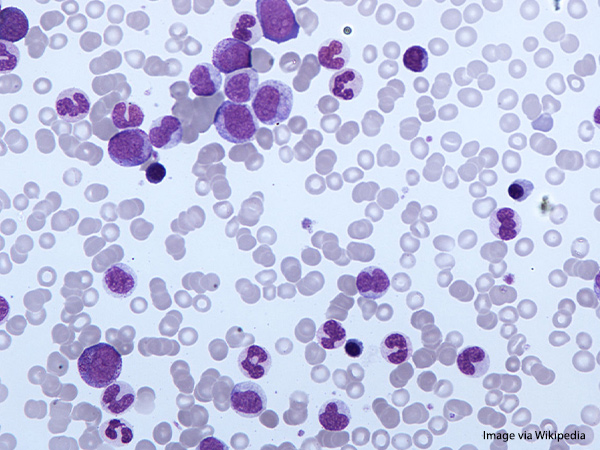A New Combination Therapy for a Rare Form of Leukemia
The FDA approved an oral combination of an epigenetic therapy along with an enzyme inhibitor to treat certain adults with chronic myelomonocytic leukemia

The U.S. Food and Drug Administration (FDA) approved the combination of two oral agents, decitabine and cedazuridine (Inqovi), to treat certain patients with chronic myelomonocytic leukemia and other disorders that cause abnormal or poorly formed blood cells to flourish, collectively called myelodysplastic syndromes (MDS).
Decitabine is an anticancer agent and a type of epigenetic therapy that affects the function of successive generations of highly proliferating cells without altering the underlying sequence of the DNA. Cedazuridine inhibits the function of an enzyme in the gastrointestinal (GI) tract and helps increase the efficacy of decitabine in ways that may result in less GI toxicity.
Chronic myelomonocytic leukemia starts with one or more mutations in the DNA of a stem cell in the blood marrow. The change propels a chain of events that interferes with the normal development of a certain type of white blood cell which, in turn, interferes with the production of red blood cells and platelets. Eventually, the abnormal cells outnumber the healthy ones, leading to anemia, the inability to fight infection, and uncontrolled bleeding.
The combination therapy was investigated in two open-label, randomized, crossover trials. The first involved 80 adult patients with MDS. The second clinical trial included 133 patients with MDS or chronic myelomonocytic leukemia. Overall, 18 percent of the patients in the first trial had complete response for a median duration of 8.7 months, and 21 percent of patients in the second trial had complete response for a median duration of 7.5 months.
Chronic myelomonocytic leukemia usually affects adults between 65 and 75 years of age and is diagnosed in almost twice as many men as women.
The FDA approved the new combination therapy for a variety of subtypes of myelodysplastic syndromes, including chronic myelomonocytic leukemia, on July 7, 2020.
